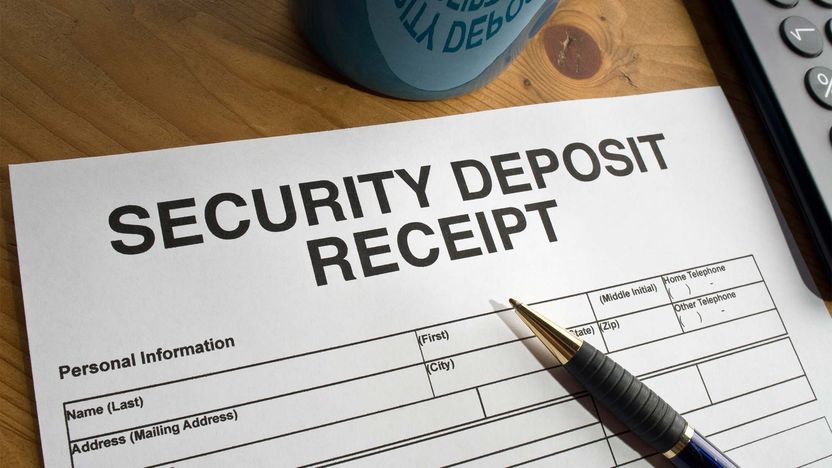DC Security Deposit Limits and Deadlines – Are you a tenant in Washington DC wondering about the security deposit limits and deadlines? Or perhaps a landlord seeking clarity on the legal requirements for security deposits? Look no further! This ultimate guide will provide you with everything you need to know about DC security deposit regulations. As a legal writer, I have meticulously researched and compiled all the necessary information in this comprehensive guide.
From the maximum amount of security deposit a landlord can charge to the deadline for returning the deposit, Eastcoastlaws.com have got you covered. Whether you’re a tenant or a landlord, understanding the legal requirements for security deposits is crucial to protect your rights and avoid any legal disputes. So, let’s dive in and explore the ins and outs of DC security deposit limits and deadlines!
Understanding Security Deposit Limits In DC
The maximum amount a landlord can charge for a security deposit in DC is equal to one month’s rent. This means that if your monthly rent is $1,500, the landlord can charge up to $1,500 as a security deposit. Keep in mind that the security deposit is not considered rent and cannot be used to pay rent during the lease term.
It’s important to note that landlords cannot charge non-refundable fees in DC. This means that any fees charged by the landlord must be refundable. Additionally, landlords cannot charge fees for routine cleaning or normal wear and tear. The security deposit is only meant to cover damages caused by the tenant beyond normal wear and tear.
If a landlord charges more than the maximum allowed amount for a security deposit, the tenant can request a refund of the excess amount. If the landlord refuses to refund the excess amount, the tenant can file a complaint with the DC Department of Consumer and Regulatory Affairs (DCRA).
Security Deposit Deadline Requirements In DC
Landlords in DC are required to return the security deposit to the tenant within 45 days after the tenant moves out. The security deposit must be returned to the tenant’s last known address or forwarded to the tenant’s new address if provided. If the landlord deducts any amount from the security deposit, they must provide the tenant with an itemized list of deductions and the remaining balance.
If the landlord fails to return the security deposit within 45 days, the tenant can file a complaint with the DCRA. The tenant can also sue the landlord in small claims court for up to three times the amount of the security deposit plus attorney’s fees.
What Can Be Deducted From A Security Deposit?
Landlords in DC can deduct the cost of damages caused by the tenant beyond normal wear and tear from the security deposit. This includes damages to the property caused by the tenant or their guests, such as broken windows, holes in the walls, or damaged appliances. Landlords can also deduct unpaid rent or other fees owed by the tenant.
It’s important for landlords to keep in mind that they cannot deduct the cost of routine cleaning or repairs that are the landlord’s responsibility. For example, if the landlord is required to provide pest control services, they cannot charge the tenant for those services. Additionally, landlords cannot deduct the cost of damages caused by normal wear and tear, such as scuffs on the floor or marks on the walls.
Steps For Returning A Security Deposit
To ensure that the security deposit is returned promptly and without any issues, landlords should follow these steps:
1. Conduct a move-out inspection with the tenant present to document any damages.
2. Obtain the tenant’s forwarding address and provide a forwarding address for the tenant to return the keys.
3. Provide the tenant with an itemized list of any deductions from the security deposit and the remaining balance.
4. Return the security deposit to the tenant within 45 days after the tenant moves out.
By following these steps, landlords can avoid any disputes with tenants over the security deposit.
Common Security Deposit Disputes And How To Avoid Them
One of the most common disputes between landlords and tenants is over the security deposit. To avoid disputes, landlords should be clear about the terms of the security deposit in the lease agreement. The lease agreement should specify the amount of the security deposit, the deadline for returning the deposit, and the conditions for deducting from the deposit.
Tenants should also take steps to protect their security deposit, such as documenting the condition of the property when moving in and moving out. Tenants should also keep a record of any communication with the landlord regarding the security deposit.
If a dispute does arise, tenants and landlords can try to resolve the issue through negotiation or mediation. If that fails, the tenant can file a complaint with the DCRA or sue the landlord in small claims court.
How To File A Security Deposit Complaint In DC
If a landlord fails to return the security deposit or deducts an excessive amount from the deposit, the tenant can file a complaint with the DCRA. The complaint must be filed within three years after the tenant moves out.
To file a complaint, the tenant must complete a Security Deposit Complaint form and provide supporting documentation, such as the lease agreement and move-in/move-out inspection reports. The DCRA will investigate the complaint and may hold a hearing to resolve the dispute.
If the DCRA finds that the landlord violated the law, they may order the landlord to return the security deposit or pay damages to the tenant.
DC Security Deposit Laws For Landlords
As a landlord in DC, it’s essential to understand the legal requirements for security deposits. Landlords must:
- Charge no more than one month’s rent as a security deposit.
- Return the security deposit within 45 days after the tenant moves out.
- Provide an itemized list of deductions from the security deposit and the remaining balance.
- Deduct only the cost of damages caused by the tenant beyond normal wear and tear.
Failure to comply with these requirements can result in legal action and damages awarded to the tenant.
DC Security Deposit Laws For Tenants
As a tenant in DC, you have rights regarding the security deposit. Tenants have the right to:
- Receive the security deposit within 45 days after moving out.
- Request the return of any excess security deposit amount.
- Receive an itemized list of deductions from the security deposit and the remaining balance.
- File a complaint with the DCRA for any disputes with the landlord over the security deposit.
By understanding your rights, you can protect yourself from any potential disputes with your landlord over the security deposit.
Conclusion And Final Thoughts
Security deposits are an important aspect of the landlord-tenant relationship. As a landlord, it’s crucial to understand the legal requirements for security deposits and follow the necessary steps to ensure that the deposit is returned promptly and without issue. As a tenant, it’s essential to protect your rights and understand the conditions for the return of your security deposit.
By following the guidelines in this ultimate guide, landlords and tenants can avoid disputes and legal action related to security deposits. Remember to document the condition of the property before moving in and moving out, and keep all communication with your landlord regarding the security deposit in writing.
If a dispute does arise, try to resolve the issue through negotiation or mediation before pursuing legal action. If necessary, file a complaint with the DCRA for a fair and impartial resolution.






